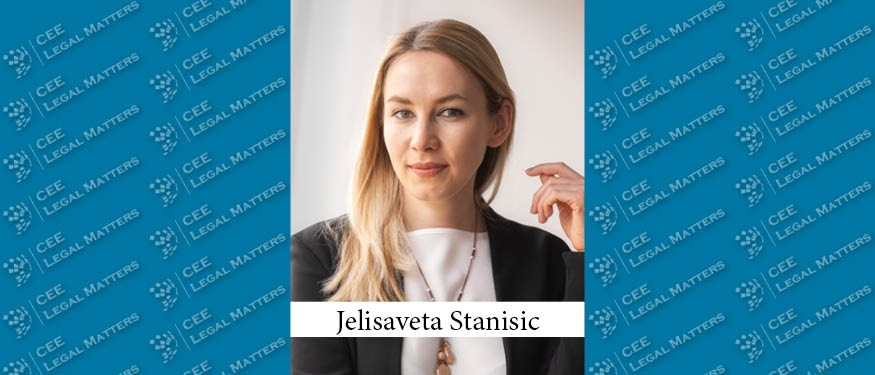The recent 30-day lawyer strike has sent ripples across Serbia’s legal and business environment, disrupting key judicial and administrative functions and raising concerns about prolonged instability. Schoenherr Partner Igor Zivkovski discusses the strike’s impact, investor sentiment, as well as a promising corporate bond program, and the evolving regulatory framework as Serbia navigates a period of uncertainty.
(Un)Equal Pay
The right to equal pay for the same work or work of equal value is one of the fundamental rights of employees, protected by both domestic legislation and international standards. In Montenegro, this right is regulated by the Labor Law, while judicial practice contributes to its interpretation and application. Furthermore, the case law of the Court of Justice of the European Union plays a significant role in shaping the legal framework, providing guidelines for the protection against discrimination in terms of wage equality.
Freshfields, BDK Advokati, and Baker McKenzie Advise on Midea's Acquisition of Arbonia Climate Division
Freshfields has advised Midea Group subsidiary Midea Electrics Netherlands on its EUR 750 million acquisition of the climate division from Arbonia AG. BDK Advokati advised Midea on the local aspects of the acquisition of Serbian company Termovent, as part of the broader transaction. Baker McKenzie advised Arbonia.
Serbia Renewable Energy Auctions Surpass Expectations
At the end of 2024, the Ministry of Mining and Energy announced the second auction for wind and solar power plants. The deadline for applying for participation in the auctions is 05.02.2025. year. After consideration of all applications and bids, the entire capacity offered at the auctions for wind farms (300 MW) and for solar power plants (124.8 MW) was successfully allocated.
Major EU Sustainability Reforms: The Omnibus Package Explained
The European Commission has introduced a new legislative package aimed at simplifying sustainability and investment regulations. In the latest Competitiveness Compass we recently covered, the Commission outlined its strategy to enhance the EU’s economic prosperity and competitiveness. Known as Omnibus I and Omnibus II, these reforms are designed to cut administrative burdens, enhance business competitiveness, and maintain the EU’s commitment to sustainability goals. The key areas affected include the Corporate Sustainability Reporting Directive (CSRD), the Corporate Sustainability Due Diligence Directive (CSDDD), the Carbon Border Adjustment Mechanism (CBAM), and the InvestEU Regulation. By streamlining compliance, the EU hopes to make regulatory obligations more manageable while still upholding environmental and social governance (ESG) objectives.
New Tariff Methodology for Natural Gas Transmission Adopted
Serbian Energy Regulatory Agency (AERS) has adopted the Tariff methodology for access to the natural gas transmission systems, which is now harmonized with the Commission Regulation (EU) 2017/460 of 16 March 2017 establishing a network code on harmonised transmission tariff structures for gas (NC TAR).
An Outlook on 2025: Banking and Finance in Serbia
ZSP Advokati Partner Jelisaveta Stanisic talks about banking and finance in 2025 in Serbia.
An Outlook on 2025: Energy in Serbia
JPM & Partners Senior Partner Jelena Gazivoda talks about energy in Serbia in 2025.
The Corner Office: Off The Partnership Track
In The Corner Office, we ask Managing Partners at law firms across Central and Eastern Europe about their backgrounds, strategies, and responsibilities. This time around we asked: If you have a formal partnership track, how do you handle lawyers on it who do NOT end up living up to the requirements to make a Partner?
For the Love of the Game: CEE’s Gaming Sector
Over the past few years, the gaming sector has been thriving in CEE. Kinstellar Partner Milan Samardzic, Rowan Legal Partner Milos Olik, ACI Partners Head of Fintech and E-Payments Nicolina Turcan, and Linklaters Warsaw Associate Aleksandra Czubek explore how CEE jurisdictions are driving the industry forward and unlocking new potential.
NKO Partners Advises GreenChem on Acquisition of Adeco Blue
NKO Partners has advised GreenChem on the acquisition of Adeco Blue from Adeco. Sole practitioner Natalija Basic advised the sellers.
The Commission For Protection Of Competition Conducts Sectoral Analysis in the Pharmaceutical Industry
The Commission For Protection Of Competition of the Republic of Serbia (“Commission“) recently announced that it will conduct a sectoral analysis of the pharmaceutical industry, specifically examining market conditions and competition in the human drug market in Serbia. This decision comes in light of increasing regulatory oversight and the need to assess competitive conditions in this key sector.
Kinstellar Advises GTC on Sale of GTC X Office Building in Belgrade
Kinstellar has advised Globe Trade Centre on the sale of its subsidiary Glamp Beograd, which owns the GTC X Building, to Forstone Realty.
CMS Advises Actis on Acquisition of Dot Towers in Serbia
CMS has advised Actis on the acquisition of Dot Towers through its Connectis Tower platform, adding 50 sites to Actis’ portfolio.
Kinstellar Advises Lafarge Serbia on Acquisition of Tribex Mining
Kinstellar has advised Lafarge Serbia on its acquisition of Tribex Mining.
Schoenherr Advises Fifth Quarter Ventures on investment in Nextesy
Moravcevic Vojnovic and Partners in cooperation with Schoenherr has advised Fifth Quarter Ventures on its investment in Nextesy. Advoro reportedly advised Nextesy.
Stefan Savic Joins NKO Partners as Head of Antitrust and Competition Practice
Stefan Savic has joined NKO Partners as the firm's new Head of Antitrust and Competition Practice.
Gecic Law, Kinstellar, and Schoenherr Advise on United Group's Sale of Eon TV International and SBB Belgrade
Gecic Law, working with Clifford Chance, has advised Telekom Srbija on its acquisition of Eon TV International from United Group as part of a deal that also saw United Group sell SBB Belgrade to e& PPF Telecom Group. Kinstellar, working with Sullivan & Cromwell, advised e& PPF Telecom Group. Moravcevic Vojnovic and partners in cooperation with Schoenherr, working with Kirkland & Ellis, advised United Group.



















